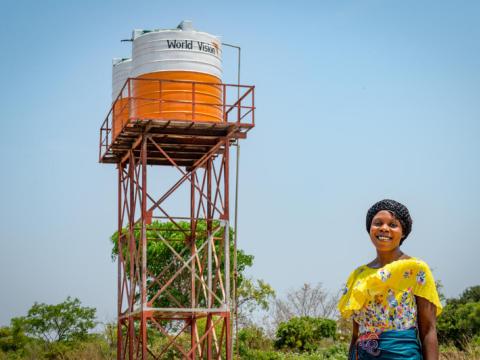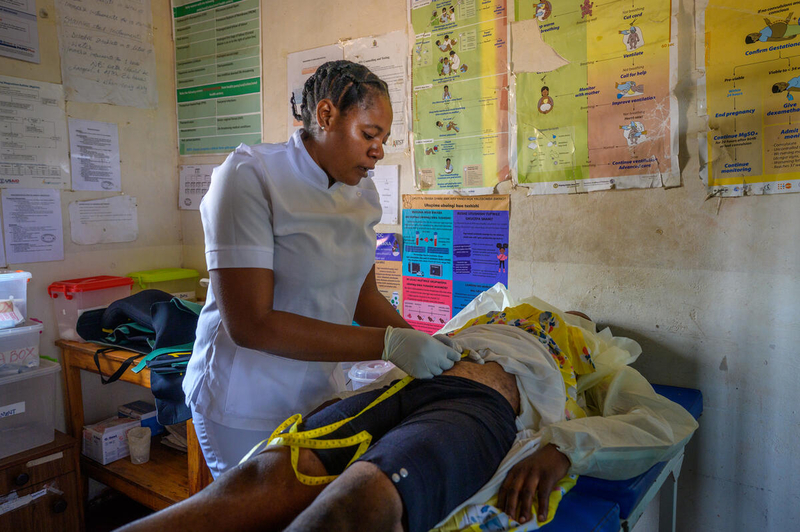Water and Birth: A Zambian Mother’s Journey Through Three Deliveries at Nsombo Health Centre

Getrude Chibwe, aged 34, has given birth to three of her four children at Nsombo Rural Health Centre. Each of those births brought very different experiences, shaped largely by the availability of water.
In 2006, she gave birth to a boy. At that time, there was no water at or near the clinic. It was common for mothers to bring their own water for cleaning and bathing, but Getrude’s home was over six miles away. By the time she arrived at the health centre around 7:00 p.m., her labour had already begun, and her clothes were stained. No one was available to help her clean them.
She gave birth at midnight. “I didn’t have water to clean the place where I gave birth from,” Getrude recalls. There was no water to bathe either. “I had to breastfeed immediately without cleaning because there was no water … It was a very sad time because after I gave birth, or someone else gives birth, the next person would give birth without cleaning the area, which could lead to infections,” she explains.

The following morning, Getrude was discharged at 11:00 a.m., still without a bath. She and her baby then walked the six miles back home, arriving about an hour later.
“It was not a very good feeling for women, and many were reluctant to come and deliver at the clinic because it was more of a challenge, they’d have to find water somewhere unfamiliar. They’d rather stay home, where they knew where to find water and could bathe,” she says.
In 2012, six years later, Getrude delivered her next child at the same clinic. This time, a borehole was nearby. Her parents accompanied her, and they were able to wash her clothes. “I was happy because I could take a bath,” she shares.
When she delivered her most recent child, the clinic’s borehole had been mechanised, making a significant difference.
“It became easier because I could go to the tap and clean myself alone. I was able to wash without much help because water is right at the doorstep,” says Getrude. With water readily available, bathing became simple, and cleaning the environment, sterilising utensils, and washing dishes after cooking also became easier.
“We are very grateful that the water is now running. It has reduced the challenges we faced in the past,” she concludes.